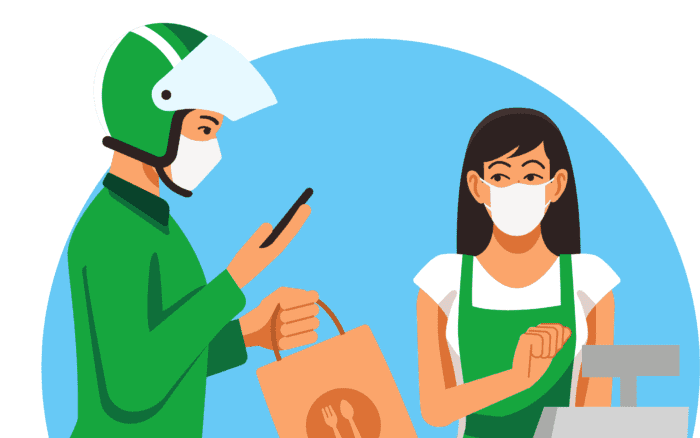STRINGENT guidelines are needed to disallow instances of cross-contamination during online food deliveries and force service providers like GrabFood and FoodPanda to toe the line, a consumer advocate said.
Consumers Association of Subang and Shah Alam (Cassa) president Datuk Seri Dr Jacob George noted that things have only gotten worse after an increased reliance on food deliveries as a result of past lockdowns.
“The problem now has to do with conduits or the outsource players who are sending the food to us – basically those in the gig economy,” Jacob who has over four decades of experience in consumer advocacy told FocusM.
“If you look at the individuals involved in the delivery of food, most of them definitely did not have any proper training in food hygiene, the Food Act 1983 or what is expected of them moving food from the point of origin to consumers.

“Their role is simply to get the food delivered as quickly as possible to maximise the points they gain, and to get paid and some commission. But nobody is looking at the cross-contamination of these deliveries.”
Jacob, a former senior member of the Malaysian National Consumer Council, said Cassa has received several complaints dealing with the hygiene of riders involved in food delivery services like GrabFood and FoodPanda.
“Some of the riders do not shave their beards, and some still have their helmets on when dropping off the deliveries. And if you stand quite close to them, you’d know that they haven’t had their bath for some time; they are sweating, they smell and their clothes are dirty.
“Besides that, the motorbikes they use are not clean either. And so are the backpacks they use to deliver the food as well – they are obviously not replaced regularly or sanitised,” he pointed out.
Jacob also raised concerns about food packages not being properly sealed or meeting hygiene expectations set in laws like the Food Act and the Food Hygiene Regulations 2009, or the Hazard Analysis Critical Control Point (HACCP) food safety management system.
“Many consumers have complained to us that their food deliveries were opened or there was spillage and their food was contaminated. Of course, they complained and got their money back, but that’s where the matter ends.
‘Nothing will change’
“No one wants to make an official complaint to the Health Ministry (MOH) or Domestic Trade and Consumer Affairs Ministry (KPDNHEP) because they think, ‘What’s the use of complaining to the Government? Nothing will change.’
“So, when you take all this into cognisance, you suddenly realise that there is a major issue of contamination or cross-contamination that needs to be solved.”
Jacob called for a “clear political will” by the Government to work alongside stakeholders in the food delivery industry to come up with guidelines and ensure best practices in food hygiene and delivery are adhered to.
Action against players in the market who flout such regulations must also be guaranteed in these guidelines, he added, so the issue of food hygiene would not be compromised or made a mockery of.
After these guidelines have been drawn up, industry players like Grab and FoodPanda can be given a period of 14 days to adhere to the new regulations. Failure to do so can lead to suspensions of their operating licences.
“This may be a tall order as we know the riders are usually rushing from point A to point B and point C, sometimes they do multi-deliveries and they also have to deal with the rain, thunderstorms and floods. But we have to start somewhere.
“And we can do so by holding food providers like Grab and FoodPanda accountable, and making it clear to them that they must provide training on food safety before appointing any rider. There must be no compromise on this.
“Most importantly, their riders must be required to wear attires or uniforms that are clean, and their motorbikes and backpacks must be regularly cleaned or sanitised as well,” he added.
Jacob also said there should be a system in place for consumers to air their grievances directly to the relevant government regulators, like MOH and KPDNHEP, besides being able to complain to the relevant delivery companies.
“And if MOH and KPDNHEP have enough complaints coming in, they should suspend the licences of these food delivery companies until they adhere to safety standards and regulations,” he said. – July 19, 2022










